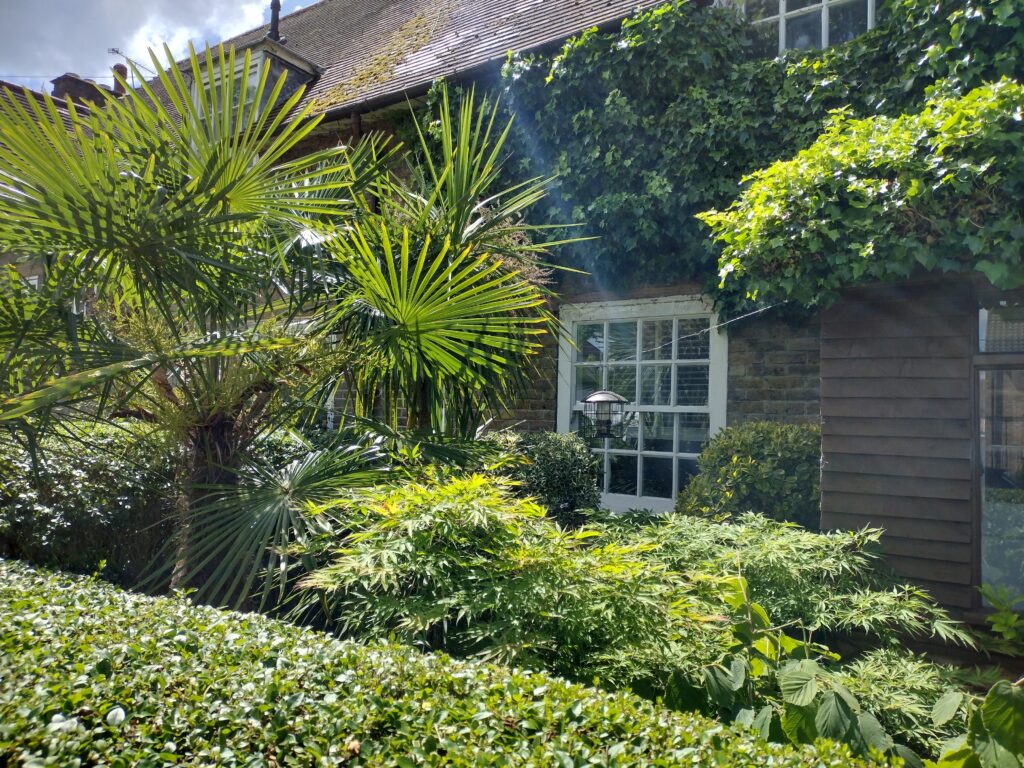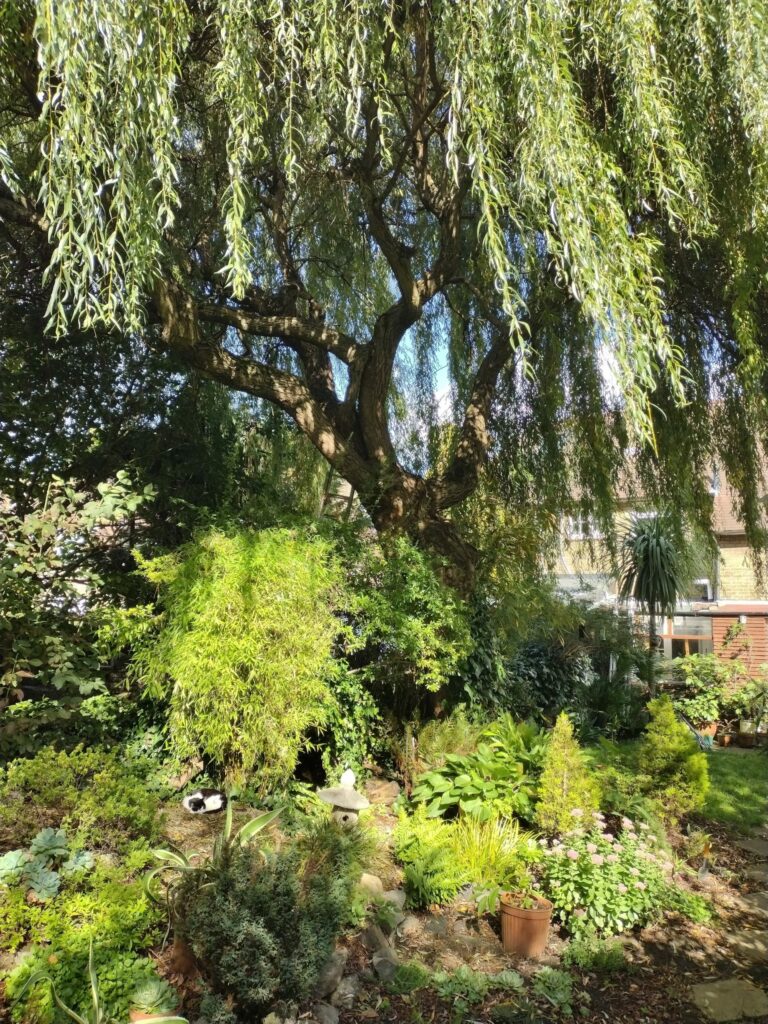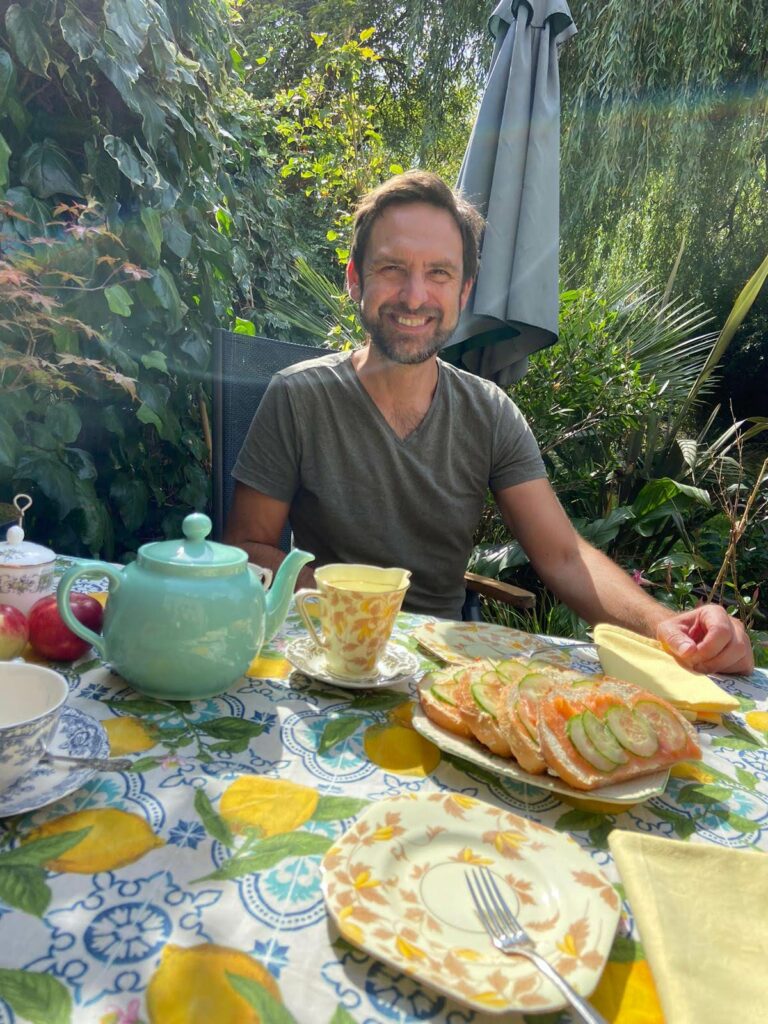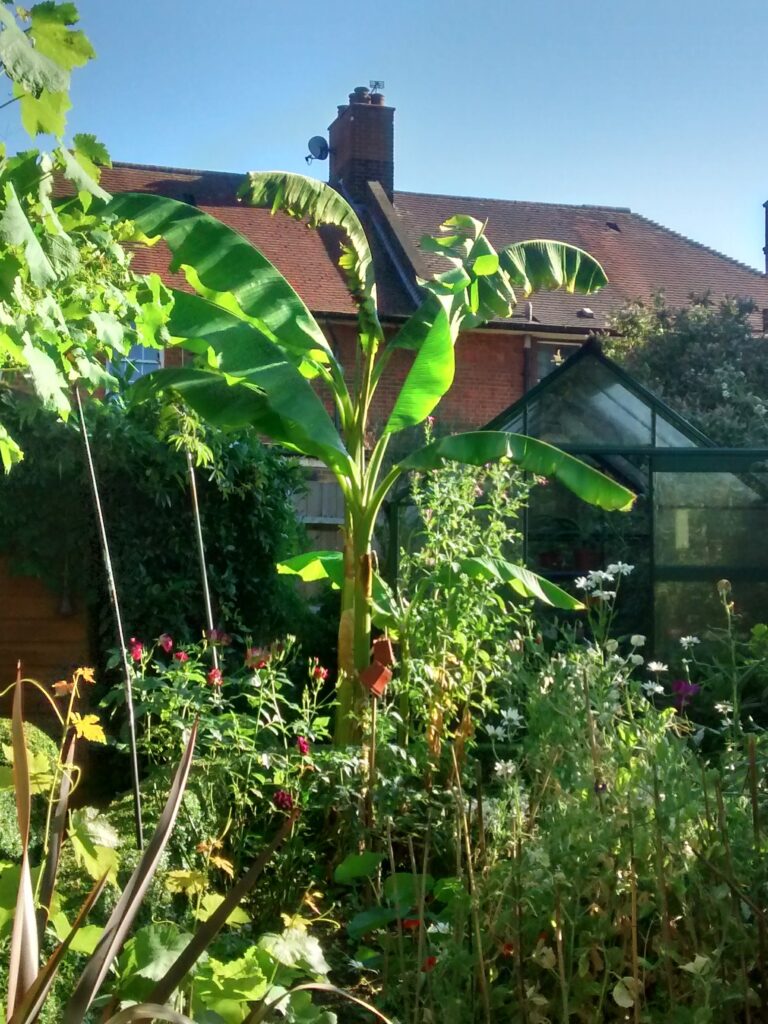Opening an oasis in Tottenham
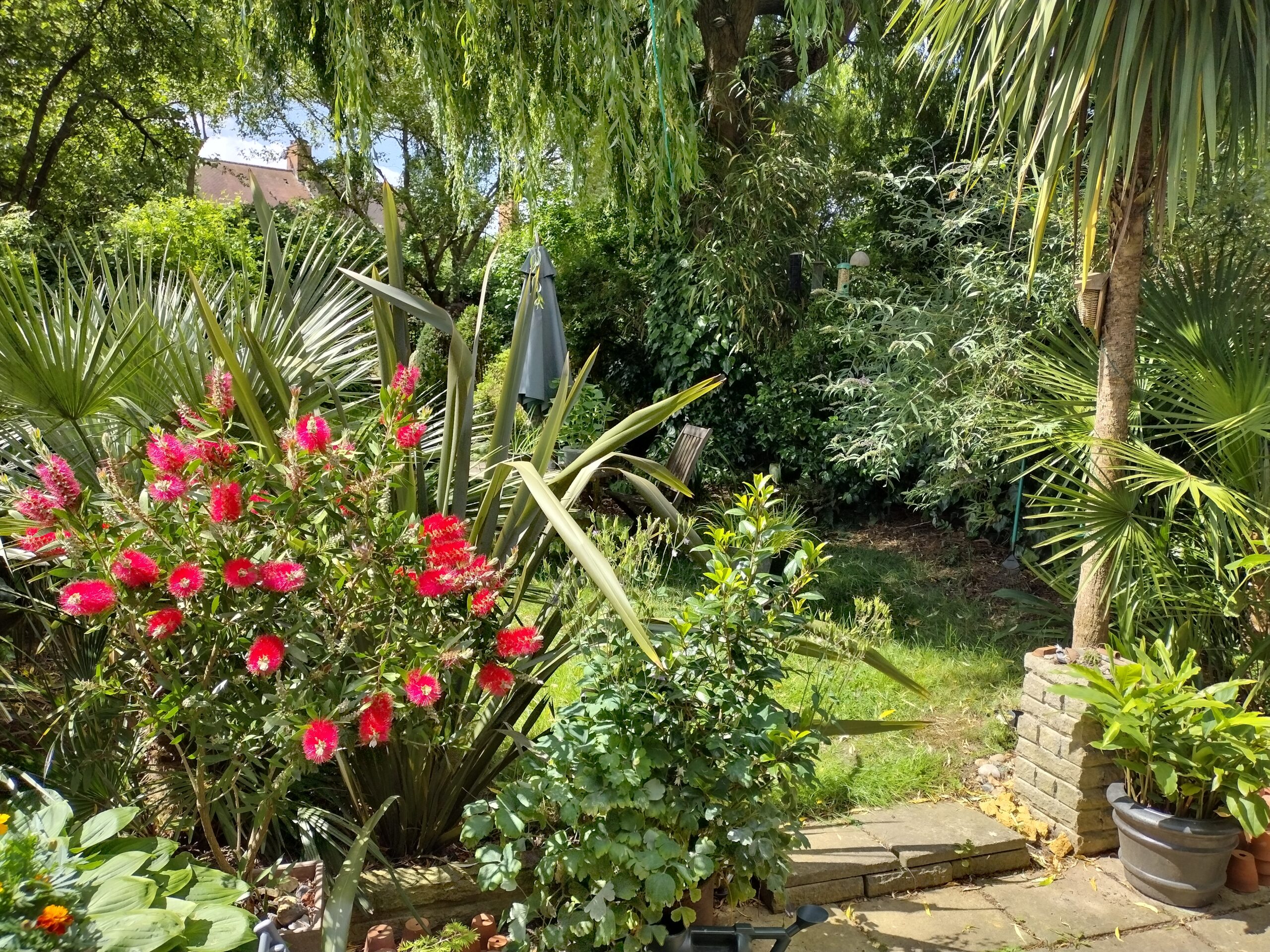
You don’t have to have rolling acres in the countryside to open your garden for the National Garden Scheme – in fact, more and more inspirational urban gardens open every year. We caught up with garden owner and Head of Communications at our founder and beneficiary charity The Queen’s Nursing Institute, Matthew Bradby to find out more about his garden…
When did you first open your garden for the National Garden Scheme and what inspired you to do so?
I first opened for the National Garden Scheme in 2017 following the launch of the charity’s ‘Gardens and Health’ report with the King’s Fund. I got talking with Penny Snell, London county organiser, and she was very encouraging and it started from there.
What would your advice be to someone thinking about opening their garden for the National Garden Scheme?
Get in touch with your county team and look at the different options – when you want to open, and how much you want to offer – the National Garden Scheme is very flexible and helpful when giving ideas about what kind of opening(s) you can have, to suit you and your garden. It’s a very rewarding experience to open your garden, and it also gives inspiration and a sense of focus. You’ll also meet some great people and make some new connections.
What’s your favourite part of a garden open day?
When the first guests arrive – welcoming them in and their (hopefully) positive reactions!
What’s your least favourite part of a garden open day?
Last minute extra work created by humans or animals – a squirrel decides to excavate a pot containing a delicate prized plant, or somebody leaves the remains of their takeaway on the pavement outside.
When did you first get interested in gardening – who or what inspired you?
My family are all keen gardeners and I was inducted at an early age. I have a lot of early memories of being in the garden and all of it interested me – the trees, flowers, fruit and vegetables, the birds and insects, the frogs in the pond. So I can’t really remember a time when I wasn’t gardening.
What’s your favourite thing about gardening / your garden?
The relationship between the plants and the soil – the fertility of the soil really is the key to the success of the plants. If something is not right with a plant, the problem is usually underground. It’s very satisfying to make your own compost and see it enriching the ground and the plants and nature responding to that.
What’s your least favourite thing about gardening / your garden?
I used to get a bit stressed by the weather and also by the local wild animals (the foxes, the squirrels), but I’ve moved on to acceptance for the most part, and work with nature as much as possible. I think all gardeners are having to think more about how to adapt to the weather and making your garden resilient for hot and dry periods.
How do you feel when you’re in your garden?
I usually feel very relaxed, there are so many things to observe. I get absorbed doing all the things that need doing, and then afterwards a feeling of satisfaction at getting all those jobs done.
What are your top gardening tips?
Make your own compost if you can. There are so many advantages – it’s free, and you can be safe in the knowledge that no peat is involved. Home made compost can tend to throw up a lot of random seedlings, but quite often these turn out to be useful little plants themselves.
A wormery is a real asset – all the vegetable peelings, banana skins, etc, from the kitchen all becomes part of the garden compost and improves fertility.
If you’re new to gardening and want to learn more, go to charity shops where you can pick up all sorts of gardening books second hand. I find older books interesting, they help put today’s gardening into perspective, how it’s developed over time.
What is your general maintenance plan for the garden?
I’m in the garden most days and I usually spend a few hours working on the garden at weekends.
In spring I sow a range of veg and flowers. I usually try a couple of different tomato varieties each year.
In early summer I usually do a major prune of all the shrubs when they have a big flush of growth. As summer goes on, watering becomes the biggest job. I’ve gradually moved to plants that are drought resistant.
In autumn the big job is to clear all the fallen leaves and then compost them or use them as a mulch.
In winter I tend to prune bigger branches and make log piles. I really enjoy being in the garden in winter and spotting all the little signs of life, things that are dormant but alive.
Do you have any ongoing or planned projects for the garden?
The lawn under the weeping willow is not thriving due to the shade so I’ve gradually been digging parts of it up, and I’m trying to work out a way of balancing the remaining grass with other plants and substrates. I have noticed a lot of keen gardeners gradually lose their lawn as they need more space for plants.
Garden details:
Garden size: Approx 40 long and 6 metres wide.
Soil type: Basically clay, but there’s a layer of loam in most parts.
Age of garden: The house was built in about 1927 (a good year for gardens!) – it’s part of a cottage garden suburb built by London County Council and there’s lots of green space in the layout of the estate. I’ve lived here for 20 years and the previous owners had planted trees and shrubs which gave the overall structure I still work with.
There is the concrete base of an Anderson shelter in the garden, dating from 1938, which I turned into a pond.
There’s no fence around the garden, just low wooden rails and then the plants form a screen, while still allowing light and views through into the next door gardens, so you’re in a much bigger space.
Aspect: South/south-west.
Matthew’s garden at 21 Gospatrick Road, Tottenham opens on 13 May. For more info CLICK HERE
Matthew supports the National Garden Scheme by opening his garden in Tottenham and has also hosted a Great British Garden Party – for details of how to take part click here
Keen to open your garden for the National Garden Scheme – click here to find out more




